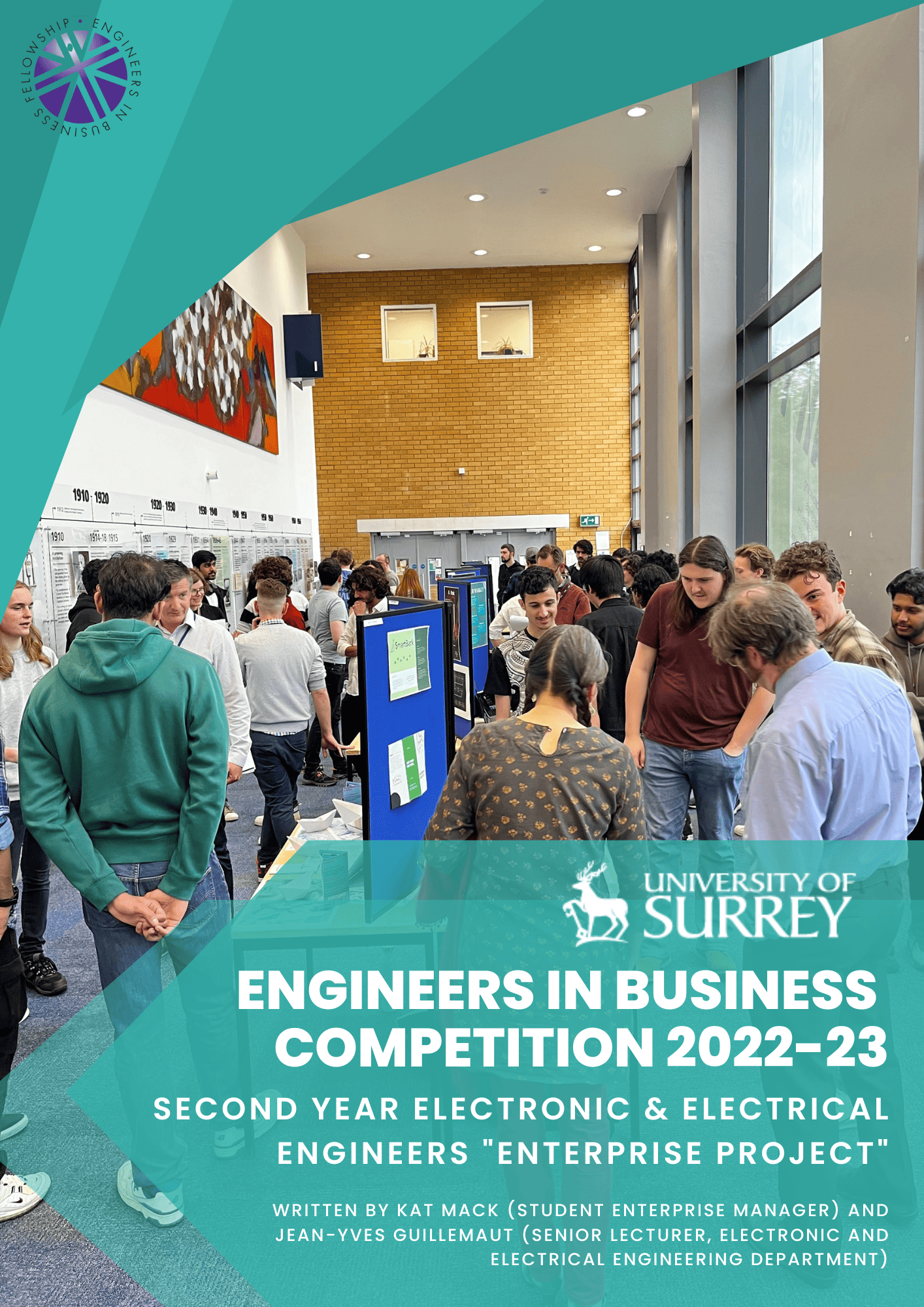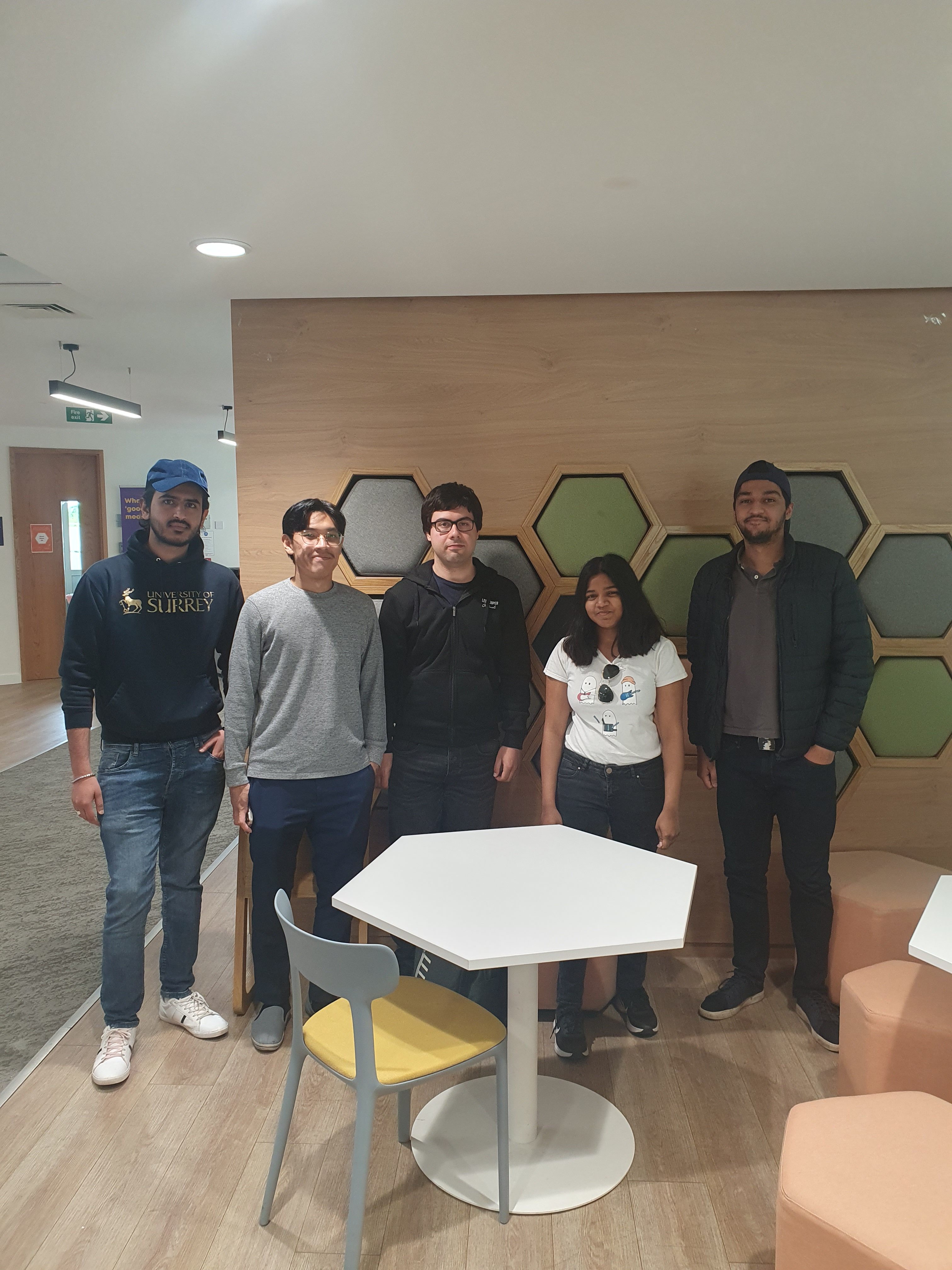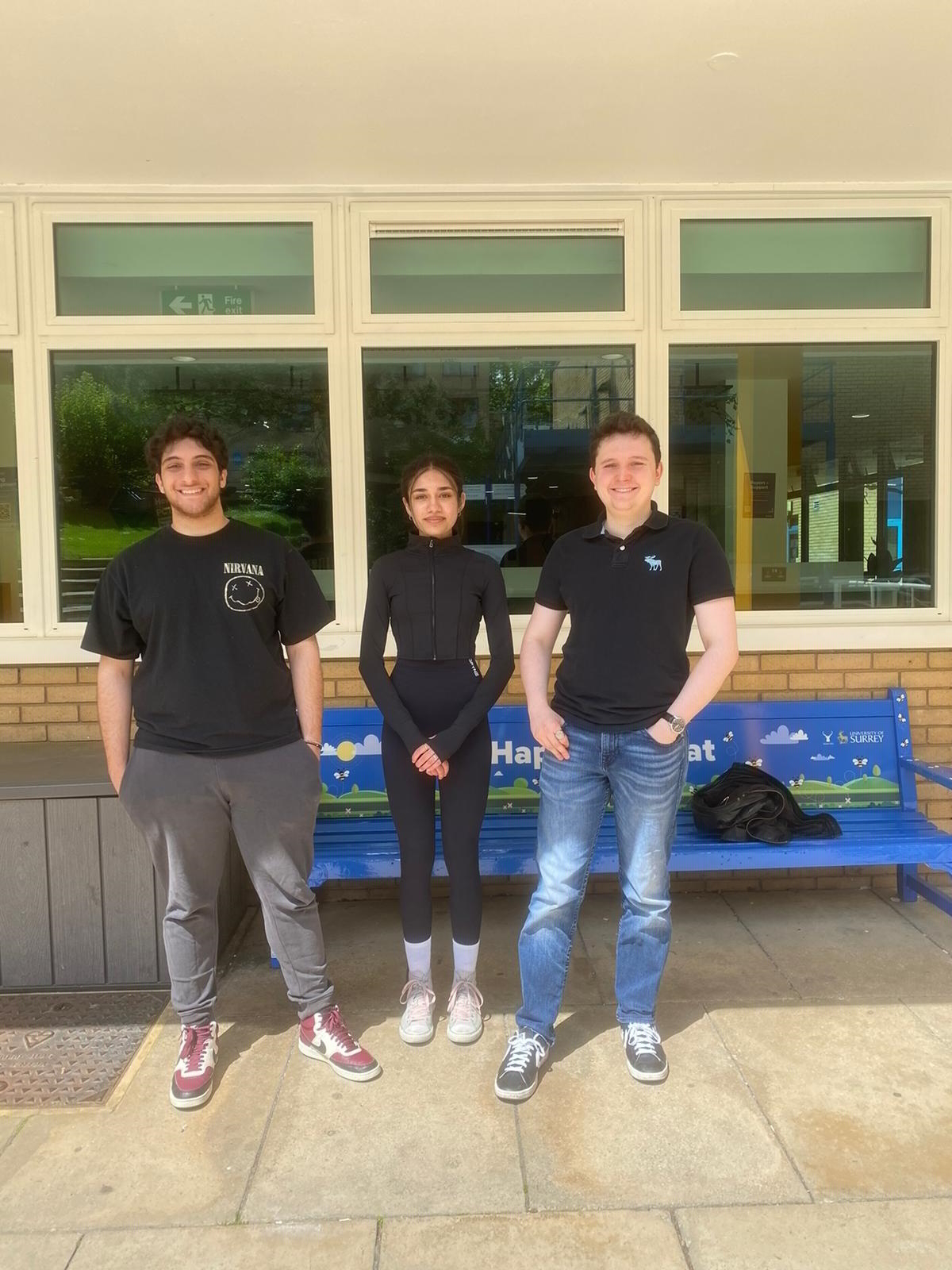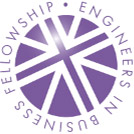Surrey Electrical and Electronic Engineers in Business Competition – 2023
Back to Competitions | The University of Surrey’s Enterprise Project embraces the Surrey Electrical and Electronic Engineers in Business Competition. The Enterprise Project is a year-long group project carried out by second-year students from the Department of Electrical and Electronic Engineering at the University of Surrey. Students work in groups to create innovative concepts relating to the Information Communications Technology, Electronics and Computing sectors that have the potential for commercialisation. The project offers an opportunity for the students to enhance their business awareness, build entrepreneurial skills and develop transferable skills such as team working, project management, presentation, negotiation and leadership. In the final stage of the project, each group produces a business plan report and pitches their concept to a multi-disciplinary panel of judges from industry and academia during a Dragon’s Den event. The competition provides seed funds for the winning team to further develop their business concept. |


First Prize Winner: Lifeline
Left to right are the Lifeline team, Jana Abou Fakher, Rami Makarem, Muhammad Bin Abdul Khalik, Warisa Arlaipatharakul and Damien Taiwo, who are Electronic & Electrical Engineering undergraduates. The team won £1,500 Engineers in Business prize.
Lifeline is an upcoming business utilising cutting-edge technology to revolutionise road safety. Lifeline’s wearable technology seamlessly integrates with vehicles with self-driving technology to detect driver emergencies and take control, providing safe navigation for the vehicle and alerting emergency services. It does this by combining emerging self-driving technologies with health monitoring systems. Lifeline strives to increase road safety for all drivers and transform the insurance industry.
Lifeline’s Jana Abou Fakherm said “This experience has been one to remember for the whole group. It has taught us not only the importance of working as a team but also the importance of being organised. The cash incentive from EIBC definitely was a great boost to make all the groups work that extra 10% harder to get over the finish line.”

Second Prize Winner: Theta Technology: e-Thermal
Left to right are Hamad Ahmed, Khairi Bin Rusli, Eric Mathieson, Natalya Pereira and Yusuf Anwer who are Electronic & Electrical Engineering undergraduates. The Theta Technology team won a £1,000 Engineers in Business prize for their innovation, e-Thermal.
e-Thermal is short for electric-thermal, which is a skin-tight layer of clothing designed to be worn under normal, everyday clothes and alters the temperature of its wearer to their preference. The device provides the altering of temperature autonomously or via a phone app. The phone app also provides temperature targeting to specific muscles of the body, which is great for those with sore muscles that need treatment
A spokesperson for the team said: “The whole experience was fun, and the incentive to push ourselves to place high in the final competition led to us working together effectively as a tight unit.”

Third Prize Winner: Tecpack
From left to right are undergraduate Electronic & Electrical Engineering undergraduates Doruk Ekingen, Miriam Paul and James Pocock, three of the innovators of Tecpack. The other team members (not pictured) are Dean Kolenchery and Sarah Newbury. The team was awarded a £500 Engineers in Business prize.
Tecpack is a modular Smart Bag with solar and mains charging. A power bank within the rucksack can charge handheld electronics and power a range of additional modules, designed to make life easier, whether travelling to and from school or work or carrying out more intense outdoor activities such as hiking and camping.
A spokesperson for the team said: “The experience was a very good way of showcasing the business aspect of engineering and allowed us to share a creative idea as a group relating to our course. The cash prize from the EIBC is an amazing incentive and ensured that each member worked hard and also made the whole project feel realistic and be taken seriously.”
Positive feedback
The Engineers in Business competition continues to be a highlight at Surrey. Our academics and practitioners involved in the delivery, support and judging of the competition look forward with anticipation to the end result and seeing the fantastic ideas of students come to life in their presentations. Engineering students are becoming smarter, more worldly and equipped for their future, with entrepreneurial and intrapreneurial skills fostered through this competition and we are so grateful for the cash prize incentive offered by Engineers in Business, something which in these economic times has proved hugely valuable to students along with the offer of continued support and mentorship.
Kat Mack
Student Enterprise Manager
University of Surrey
The competition provides a fantastic opportunity for our students within the Department of Electrical & Electronic Engineering to develop their entrepreneurial skills. Having support from the EIBF has been invaluable in providing some additional motivation for our students, creating some recognition for their achievements and opening up opportunities to take their business concepts further.
Jean-Yves Guillemaut
Senior Lecturer in Three Dimensional Computer Vision
University of Surrey
